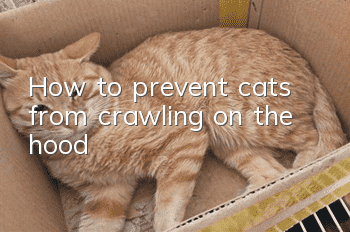Why won’t my cat eat or drink after being neutered?

Reasons for cats not eating or drinking after sterilization:
1. Cats have stress reactions due to sterilization. Because cats are sensory animals, if they are suddenly sterilized, it can easily lead to the cat not eating or drinking. In this case, the owner must pay attention.
2. The gastric motility has not fully recovered after the operation. During the operation, the doctor uses anesthesia on the cat, which will cause the smooth muscles to relax and suppress the appetite to a certain extent.
3. Wound pain leads to loss of appetite. When the anesthetic wears off, the cat will only feel pain, causing the cat to become restless and unmotivated to eat.
4. The cat may be feeling unwell. The cat will start to eat 2-3 days after the operation, but if the cat still refuses to eat, has a fever, and the wound is red, swollen and oozing blood, the cat may be feeling unwell at this time.
5. After sterilization, the cat will be depressed and in a bad mood, leading to anorexia.
Precautions for cat sterilization surgery:
1. Determine the appropriate age before surgery. The current generally recognized age is about 6-10 months.
2. Before surgery, make sure that the cat’s vaccinations have been completed and have been administered for more than a week.
3. Before surgery, it is necessary to confirm whether the cat has symptoms such as fever, vomiting, sneezing, and diarrhea.
4. Do not eat or drink for more than 8 hours before surgery, otherwise the surgery will not be possible.
5. A bottle of veterinary eye drops needs to be prepared before surgery.
6. You cannot change the environment at will after surgery. Cats are very fragile after sterilization. Only in familiar places will they feel safe enough.
- What are the causes of cats losing hair abnormally?
- Why does cat hair turn white?
- What are the black dots on a cat’s skin?
- The cat suddenly loves to drink water like crazy, so don’t be too happy!
- Are cats allergic to Phalaenopsis?
- What should I do if my cat wets the bed? What causes cats to wet the bed?
- How many months do cats usually go into heat?
- Is it too early to neuter a male cat at 6 months?
- What should I do if my cat’s nose doesn’t heal after injection? Teach you how to deal with cat nasal branch!
- How much weight can a Ragdoll cat grow?



